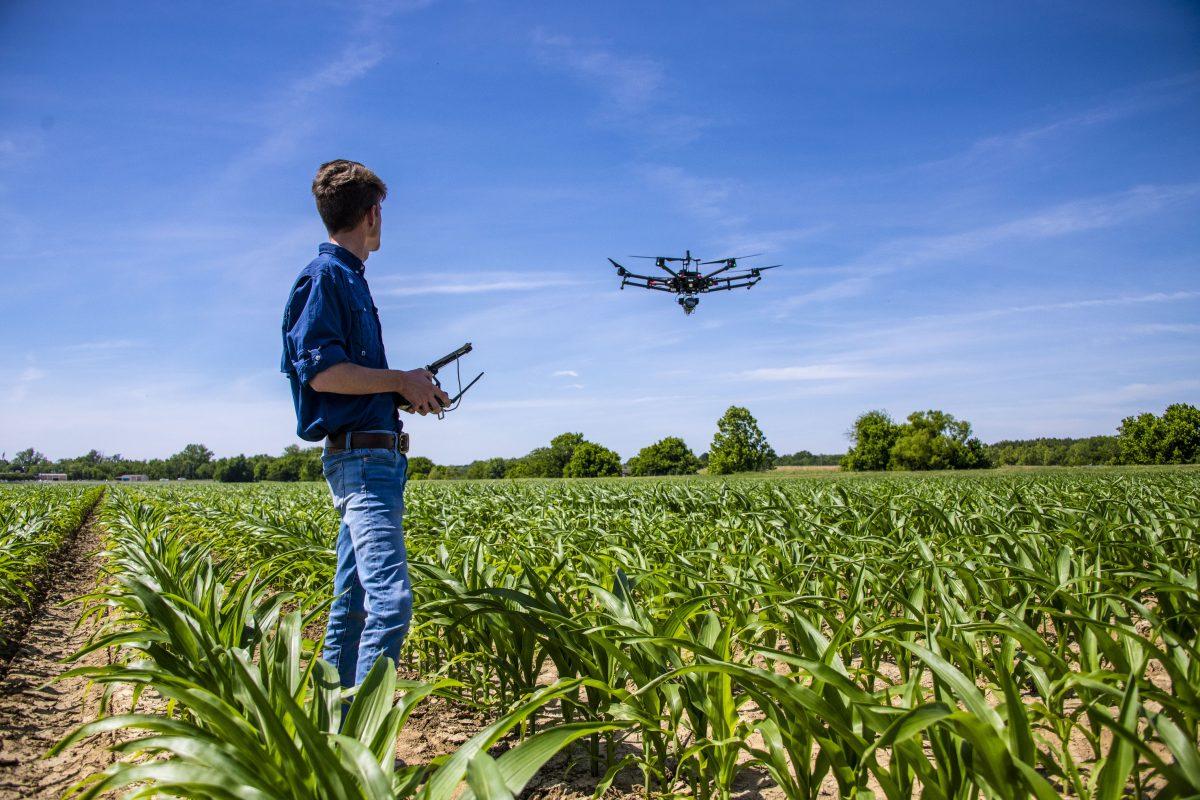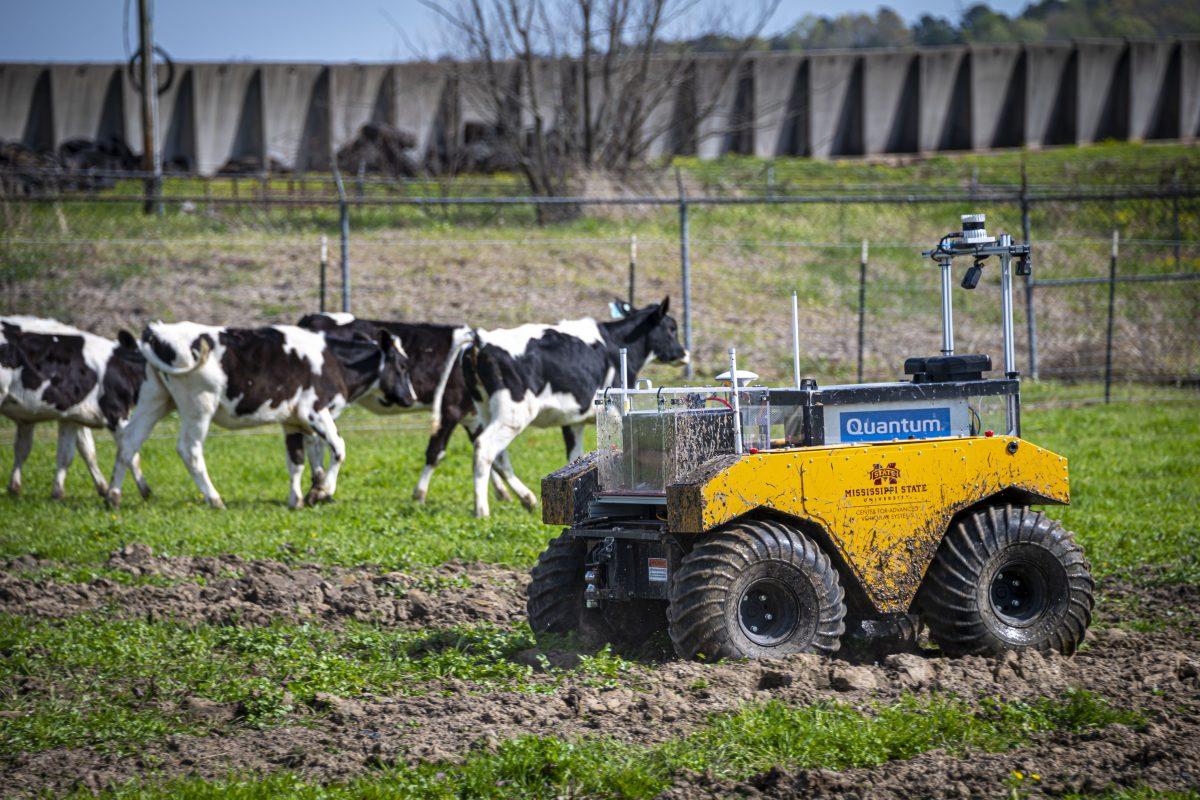Mississippi State University has launched its new Agricultural Autonomy Institute to research and develop autonomous systems for agriculture.
Global agriculture is constantly evolving as governments look to feed an ever-increasing global population. To keep up with demand, farmers are turning to self-operating machines to perform labor traditionally done by humans.
Alex Thomasson, head of MSU’s Department of Agricultural and Biological Engineering, is the director of the newly established institute. Thomasson said that this is the world’s first institute dedicated exclusively to the study of agriculture autonomy.
Thomasson said that MSU plans to be a national hub for agricultural autonomy research with the establishment of the MSU Agricultural Autonomy Institute.
“We want Mississippi to be the Silicon Valley of agricultural autonomy, like San Jose, California, is in the microchip world,” Thomasson said.
Thomasson said that the development of agricultural autonomy helps to solve a major issue affecting countries around the globe. The U.S. and European nations often hire agricultural laborers from other countries, an expensive and logistical process. By researching and developing autonomous agriculture systems, MSU is providing solutions to the global labor shortage in agriculture.
Thomasson said that agricultural autonomy is not only a solution to labor shortages but also offers benefits in precision agriculture. Precision agriculture involves the use of technology to meet the exact needs of crops. Through precision agriculture, farmers can apply varying amounts of pesticides, herbicides and fertilizers to individual plants in a field.
Madison Dixon, assistant director of the Agricultural Autonomy Institute, said that the institute will help researchers develop research proposals and will offer workforce training on how to use autonomous systems.
The institute includes a 4,800-square-foot laboratory located in the Pace Seed Technology Building that offers a climate-controlled space to house and work on autonomous devices. Thomasson said that students in a variety of engineering and agriculture disciplines can use the lab space to work on projects.
The institute also has a five-acre field at the North Farm called the “autonomous acres proving ground.” This field will be used for the testing of agriculture autonomy devices.
Dixon said that the institute will bring together experts from various disciplines who have experience with autonomous systems.
“What we hope to offer to the university is to serve as a clearinghouse for all of the subject matter experts at the intersection of agriculture and autonomous vehicle systems,” Dixon said.
Collin McLeod is an MSU research engineer working in agricultural autonomy and remote sensing for agricultural applications. McLeod is working on a project on high-intensity phenotyping and is using autonomous ground vehicles to collect data on row crops.
McLeod said that the Agricultural Autonomy Institute fosters cooperation among researchers from different departments.
“It gives us more resources to pull from and allows us to kind of collaborate with other people and get researchers involved that otherwise wouldn’t be available in just one department,” McLeod said.
Thomasson said that MSU is designing some new courses on autonomous systems. The scope of these courses will not be limited to agricultural autonomy.
One of these courses will instruct students on robotics and biological systems. Thomasson said that the course will provide lessons on robotics that can be applied in agriculture or in other fields like biomedical engineering.
Assistant Director Dixon said that MSU is planning to start a student agriculture robotics team to compete in intercollegiate competitions. Dixon said that a team could be organized this year if there is enough student interest.
The Agricultural Autonomy Institute has been in development for some time. Thomasson said that MSU was an ideal place to establish such an institute.
“I felt like all the pieces to create such an entity mainly already existed at Mississippi State,” Thomasson said. “Mississippi State has a longstanding, strong reputation in agricultural research and particularly in precision agriculture.”
The institute will have an official grand opening event in October. Students interested in the institute can reach out after the opening to learn more.
The Agriculture Autonomy institute tests autonomous vehicles at the North Farm testing ground.













